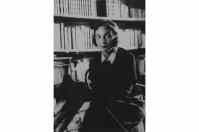
Der Rosenkavalier
Royal Opera House
Der Rosenkavalier is the most self-conscious of comedies, as well as being largely concerned with self-consciousness. It has two kinds of joke: one, the broad practical jokes indulged in at enormous length at Baron Ochs’s expense; the other, the sophisticated humour of youthful illusions being dashed, while others rapidly spring up to replace them. Rosenkavalier is subtle enough, just, to have counterpoises to these deflationary devices. So Ochs, though an impoverished randy aristocratic lout, also has genuine dignity, moments of thoughtfulness where the thoughts aren’t about how irresistible he is to young girls. Octavian, though ashamed of the rapidity with which his vows of eternal love for the Marschallin with which she launches the opera, producing a Tristan-parody of dialectics about ‘I’ and ‘You’ to follow up the more blatant one of the raunchy prelude, has enough poise and grace to be a movingly chastened figure, a fitting contributor to the glorious trio near the end of the opera. And Sophie, though the apt object of one of the greatest put-downs in opera, the Marschallin’s ‘Don’t talk so much, you are quite pretty enough’, also rises to some sense of what she isn’t and what the Marschallin is, saying that there is something about the older woman that leaves her frightened and bewildered.
The work’s own self-consciousness is part of Hofmannsthal’s positively maniacal obsession with having every detail sorted out, prepared for and explained. Failing to realise that he had to leave some work for the composer to do, and that music is the art in which preparations and explanations are de trop, everything is raked over before it’s happened, takes ages when it does happen, and then is investigated at length. Even in a performance as superb as the opening one of the latest revival at the Royal Opera of John Schlesinger’s 25-year-old production, where the action is as lucid as possible, where gestures are limited and precise, there are large stretches in which no amount of directorial intelligence and ingenuity can conceal the excessive explicitness of the text, which leads Strauss to produce reams of musical vacuity. How does the Marschallin know where and when to turn up at the squalid inn where Act III is set? It’s a question I suspect most adorers of the work can’t give the answer to, and I don’t blame them. But if they clung on to the garrulity of the text they would find it.
No wonder the Marschallin, in the original plan an almost marginal figure in the action, became its centre and the reason for the opera’s popularity, with performers of the part and audiences. This woman is all-wise but still vulnerable, a devastating combination of qualities. She can tell Octavian that he will fall in love with someone else soon, and he does, and she has the gratification of having been right, at the same time as she can say, ‘But I didn’t think it would happen so soon.’ And yet even she is put in perspective, in a little-noticed passage in Act III, where Octavian, disguised as the chambermaid Mariandel, gets tiddly and sentimental, to Ochs’s embarrassment, and starts going on in winey tones about how we’re all human and transitory, life means nothing, and so on, the content of the Marschallin’s monologue reduced to its banal core. That is the text’s counterpart to Strauss’s sending up the great melody on which the trio is founded in Mariandel’s ‘Nein, nein, i’ trink’ kein Wein’. So comprehensive is the work’s knowingness that it can induce claustrophobia.
The cast in this production is not stellar, but it is adequate, while the conducting of Kirill Petrenko is virtually ideal. Textures are kept as light as Strauss permits, tempi are moderate enough for the words to be articulated clearly, the climaxes are huge without being gross. Even in the prelude I heard many details that were fresh to me. The Marschallin of Soile Isokoski is not remarkable, and her tone has thinned worryingly from what it was even a couple of years ago, but she is heartfelt, natural, and saves herself for the great moments of Act III. Sophie Koch is very much a soprano, not a mezzo, Octavian, but a thoroughly persuasive one, and looks stunning in her/his officer’s uniform. And Lucy Crowe shows every sign of taking her place with the classic Sophies. Peter Rose, though he can only gesture towards the lower reaches of the vocal line, presents a relatively complex and even sympathetic Ochs, and Thomas Allen, in his role debut as Faninal, makes a great deal out of very little, and is still the complete operatic artist. All the still more minor roles, in this opera of clutter, make their impression. For me, it was a memorable evening, one in which I at last made my peace, so far as I am able, with this equivocal masterpiece.






Comments
Comments will appear under your real name unless you enter a display name in your account area. Further information can be found in our terms of use.